
The Seagram Company Ltd. was a Canadian multinational conglomerate formerly headquartered in Montreal, Quebec. Originally a distiller of Canadian whisky based in Waterloo, Ontario, it was in the 1990s the largest owner of alcoholic beverage lines in the world.
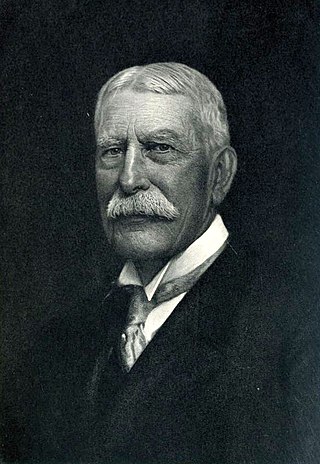
Henry Morrison Flagler was an American industrialist and a founder of Standard Oil, which was first based in Ohio. He was also a key figure in the development of the Atlantic coast of Florida and founder of the Florida East Coast Railway. He is also known as a founder of the cities of Miami and Palm Beach, Florida.

Edward Gresham Ball was a businessman who wielded powerful political influence in Florida for decades. Referred to as "a law unto himself", despite the fact that he never held public office and did not own much of the assets he controlled, he led a forest products company, a railroad and owned newspapers. He worked for and with his brother-in-law Alfred I. du Pont for nine years before running the Alfred I. duPont Testamentary Trust's businesses himself for another 46 years. He founded and led the St. Joe Paper Company to become a major player in several industries in Florida. He was a leader of the anti-communist Pork Chop Gang, a group of Democratic Party legislators from North Florida.

Alfred Irénée du Pont was an American industrialist, financier, philanthropist and a member of the influential Du Pont family.

The Epping Forest was a historic, 58-acre (230,000 m2) estate in Jacksonville, Florida, United States where a luxurious riverfront mansion was built in the mid-1920s by industrialist Alfred I. du Pont and his third wife, Jessie Ball du Pont. It was added to the U.S. National Register of Historic Places in 1973 and has been restored to its original grandeur as the home of the Epping Forest Yacht Club. On April 18, 2012, the AIA's Florida Chapter placed the Epping Forest Yacht Club on its list of "Florida Architecture: 100 Years. 100 Places".
The St. Joe Company is a land development company headquartered in Panama City Beach, Florida. Founded in 1936 and until 1966 known as St. Joe Paper Company, the company still operates a forestry division but is primarily engaged in real estate development and asset management. The company's land holdings are concentrated in Northwest Florida with the vast majority located in Bay and Walton counties. Of the 110,500 acres The St. Joe Company owns that fall within the Bay-Walton Sector Plan, 53,000 acres were placed into conservation by the company. The company develops its land for a variety of uses including residential neighborhoods, hotels, apartment communities, leasable commercial space, office buildings and medical facilities among others.
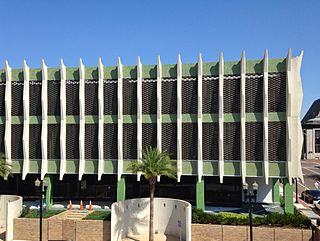
The Jessie Ball duPont Center is a nonprofit complex in downtown Jacksonville, Florida. The building served as the main branch of the Jacksonville Public Library system from 1965 until 2005, when it was replaced by the current facility. The library was named for W. Haydon Burns, who served as Mayor of Jacksonville for fifteen years and also served two years as Governor of Florida. The Haydon Burns Library replaced the Jacksonville Free Public Library, which was built in 1905 and designed by Henry John Klutho of New York City. On April 18, 2012, the AIA's Florida Chapter placed the building on its list of Florida Architecture: 100 Years. 100 Places.

Adventure Landing is a group of amusement parks located in Florida, New York, North Carolina and Texas. The first park was opened in Jacksonville Beach, Florida in 1995 by Adventure Entertainment Company. It was a success and nine other Adventure Landing parks were constructed.
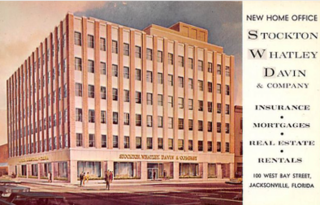
Stockton, Whatley, Davin & Co. (SWD) was one of the largest mortgage banking, real estate and insurance firms in the Southeast of the United States. It was founded in 1884 as the property management Telfair Stockton Company and operated until 1983 when it was broken up by its new owner Phillips Petroleum Company. The assets were sold to First National Bank of Boston and Gate Petroleum.

BP p.l.c. is a British multinational oil and gas company headquartered in London, England. It is one of the oil and gas "supermajors" and one of the world's largest companies measured by revenues and profits. It is a vertically integrated company operating in all areas of the oil and gas industry, including exploration and extraction, refining, distribution and marketing, power generation, and trading.
Raymond Knight Mason was an American business leader for nearly sixty years, almost 40 as head of the Charter Company in Jacksonville, Florida. Charter was in the Fortune 500 for 11 years beginning in 1974 and ranked 61st in 1984.

Florida National Bank (FNB), founded in 1905, was the second largest commercial bank in Florida. Florida National Group was acquired in 1990 by First Union Corporation, which was renamed Wachovia in 2001; Wachovia was subsequently acquired by Wells Fargo in 2008.
The Alfred I. duPont Testamentary Trust is a non-profit organization created by philanthropist Alfred Irénée du Pont in 1935, devoted to supporting the trust's sole charitable beneficiary, the Nemours Foundation. As of 2015, the organization stated it oversaw approximately $5 billion in assets.
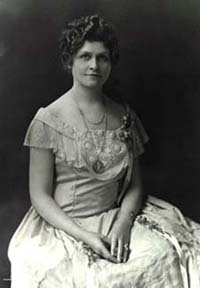
Jessie Ball duPont was an American teacher, philanthropist and designated a Great Floridian by the Florida Department of State.
International Controls Corporation (ICC) was an American holding company incorporated in 1965. Before being taken private in 1997, its subsidiaries included Checker Motors Corporation and Great Dane Trailers. It had previously been forced to liquidate many of its holdings after charges of massive securities fraud against the company's founder, fugitive financier Robert Vesco.
Alexander Philip "Zeke" Zechella was a United States Navy veteran and pioneer in the usage of nuclear energy who headed several major companies before retiring in Jacksonville, Florida, and assisting local non-profit agencies.
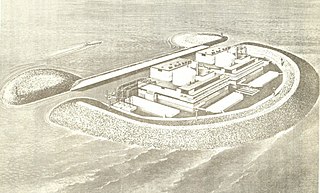
Offshore Power Systems (OPS) was a 1970 joint venture between Westinghouse Electric Company, which constructed nuclear generating plants, and Newport News Shipbuilding and Drydock, which had recently merged with Tenneco, to create floating nuclear power plants at Jacksonville, Florida.
Cemp Investments was the primary holding company and investment vehicle for, and named after, the four children of Samuel Bronfman: Charles Bronfman, Edgar Bronfman, Aileen "Minda" Bronfman de Gunzburg, and Phyllis Lambert, also known as the Montreal branch of the Bronfman family. Cemp became one of the largest privately owned companies in Canada. At its peak, it controlled tens of billions in dollars of assets in major distilling, commercial real estate development, oil and gas, and entertainment companies across North America.
Edward Michael Carey was an American oil industry executive who served as president of Carey Energy Corporation and helped finance the political ambitions of his brother, Hugh Carey, who served as the Democratic Governor of New York from 1975 to 1982.

Gate Petroleum is a privately held diversified corporation headquartered in Jacksonville, Florida, the 11th largest in Florida in 2022. In FY 2022, the company ranked No. 338 on the Forbes list of America's Largest Private Companies and had sales of $1.44 billion and employment of 3,500.












